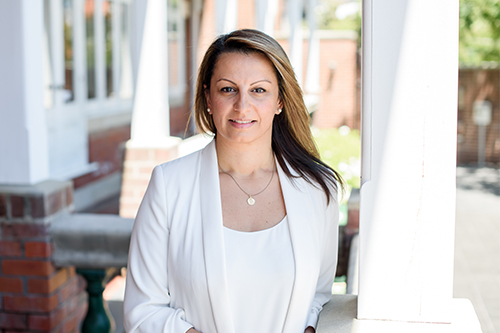
Last week, Western Australia became the third state to announce restrictions on the use of mobile phones in classrooms, following moves by the governments of Victoria and NSW.
The WA Government’s new “off and away all day” policy, which states effect from the start of next year, will ban students from Kindergarten to Year 6 from using mobile phones during school hours in all public schools.
Some psychologists point out that smartphones are often used at the expense of face-to-face communication and raise concern about the risks of distraction and addiction.
However, Associate Professor Miriam Tanti, ACU’s Strathfield Campus Dean and Acting Head of School in NSW/ACT, says past experience has shown that banning mobile phones in classrooms doesn’t work.
Rather than restricting mobile phones in classrooms, says Associate Professor Tanti, schools should be creating opportunities that engage young people.
“Of utmost importance is creating activities and educational experiences that focus on learning for pleasure,” Associate Professor Tanti told The Educator.
“Education today, is characterised by its overcrowded curriculum, assessment-driven model, and focus on outputs; educators have lost sight of that spark which focuses on pleasure and wellbeing which, in turn makes good human beings.”
In this way, says Associate Professor Tanti, education and educational activities must be “authentic, real-world, inquiry-based activities” where the learner “is not a recipient of an educative experience but plays an active role in it”.
Fostering the meaningful use of technology
Educational authenticity must not just mirror the real-world but be the real-world, where technology is ubiquitous, she said.
“There isn’t anything we do that does not have some form of technological intervention – education should be no different.”
Associate Professor Tanti said the focus should be on fostering the meaningful use of a range of digital technologies to explore, question, think critically, communicate, share, design, remix, remake solutions to problems.
So, what might such educative experiences look like?
“Students at the university, those preparing to be primary school teachers, have been using drone technology to explore initiatives to conserve our local mangroves. Aerial imagery is collected via the drone and sent to student mobile phones,” she said.
“This data is then shared with peers and academics in order to critically analyse the composition and maps, which are then utilised to determine conservation strategies.”
Associate Professor Tanti has also been working with a local primary school who were approached by their local council and the water board to prevent salt water from seeping into pipes and manholes and then mixing with recycled water.
“The students have been working closely with industry partners and Skyping experts, via their digital devices, to come up with a solution. They have also used microbits, sensors and 3D printers to prototype their solution,” she explained.
“This project was linked to the following curriculum areas: History, Scientific principles of Forces and Newton’s Law, Mathematics principles of Ratio and Measurement, Digital and practical skills.”
Why leaders should take a ‘Slow’ approach
Associate Professor Tanti’s upcoming book discusses the value of a ‘Slow’ approach to technology-rich education.
She says Australian school leaders must move away from the dominant discourse that underpins education, in particular, technology-rich education – a discourse “heavily focused on ensuring Australia develops a workforce able to compete in the global economy, that reinforces the importance of globalism and competition as fundamental to educational reform.”
“This is reform focused on the here and now. To move beyond such short-term thinking, that in itself will not adequately prepare students for a twenty-first century world of uncertainty, complexity and technological innovation, we need to engage in a Slower approach,” she said.
“This means bringing about a whole paradigm shift, one which asserts humanistic values, over the economic or vocational.”
Associate Professor Tanti referred to Slow as a ‘whole person learning experience’: reflecting, questioning, imagining, sensing, exploring, all occurs in the Slow, technology-rich lived experience, and engages both the body and mind.
“Slow will foster curiosity and wonder, made possible through the development of an open and reflective mind; allow students to appreciate natural time, over that which is artificial and manmade; encourage students to embrace the process of learning; and to generate a strong sense of connectedness to self, others and place – with digital technologies,” she said.
“Using Slow to reconceptualise education makes it increasingly possible to promote the aims of education, which is to encourage an attitude of caring and participation towards each other and the world in which we live, for the long term.”


